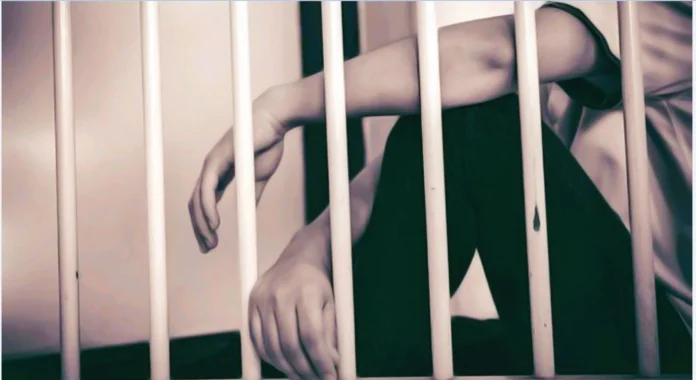By Dr Swati Jindal Garg
Reaffirming the primacy of the Right to Liberty, the Delhi High Court has held that the pendency of a criminal appeal before the Supreme Court does not bar prison authorities from considering requests for furlough or parole. In a significant ruling, the Court clarified that such pendency cannot automatically disqualify convicts from seeking temporary release, and that each case must be evaluated on its own merits by the competent authority.
The verdict came in response to a batch of petitions referred by a single judge in 2023. These petitions sought clarity on whether Note 2 of Rule 1224 of the Delhi Prison Rules, 2018—the so-called impugned rule—applies to convicts whose appeals are pending before the apex court.
THE RULE IN QUESTION
Note 2 of Rule 1224 reads: “If an appeal of a convict is pending before the High Court or the period for filing an appeal before the High Court has not expired, furlough will not be granted and it would be open to the convict to seek appropriate directions from the Court.”
This clause had formed the basis for jail authorities to deny furlough to several convicts whose Supreme Court appeals were still pending. The single judge had previously ruled that such convicts were ineligible for furlough, interpreting the term “High Court” to include the Supreme Court as well. The matter was then referred to a division bench to assess whether that interpretation infringed the fundamental rights to equality and liberty.
PAROLE VS FURLOUGH: A LEGAL DISTINCTION
The High Court reiterated the legal distinction between parole and furlough:
- Parole is a conditional release, granted for specific exigencies like death or illness in the family, or medical emergencies.
- Furlough is a periodical release intended to help prisoners maintain family ties and incentivize good behaviour. Unlike parole, furlough does not require a specific reason and is considered a reformative tool, not an absolute right.
Both are governed by specific eligibility norms and public interest considerations, and are subject to judicial review.
THE HASHIMPURA BACKDROP
The case in question relates to the 1987 Hashimpura massacre, a communal atrocity during riots in Meerut, Uttar Pradesh, where members of the Provincial Armed Constabulary (PAC) allegedly rounded up 42-45 Muslim men, shot them, and dumped their bodies in nearby canals. Only 11 of the deceased were ever identified.
Initially acquitted by a trial court in 2015, 16 PAC personnel were later convicted and sentenced to life imprisonment by the Delhi High Court in 2018. Their appeals are currently pending before the Supreme Court. Following the denial of their furlough by prison authorities, the convicts challenged the refusal, arguing that the Delhi Prison Rules only refer to the High Court, and not the apex court.
THE COURT’S REASONING
In its detailed 105-page judgment, the division bench agreed with the convicts’ argument, ruling that the term “High Court” in Rule 1224 cannot be interpreted to mean any appellate court. The Court held: “Mere pendency of a criminal appeal or special leave petition before the Hon’ble Supreme Court cannot be taken as a bar for release on furlough. Each case must be determined based on its own eligibility criteria, as per the Rules, by the competent authority.”
The bench categorically set aside the earlier interpretation that extended the rule’s scope to Supreme Court appeals and emphasized that: “To impose a bar on consideration of parole/furlough where a special leave petition or appeal is pending before the Supreme Court could result in unpredictable consequences and practical hardships.”
“It cannot be expected that every convict would be compelled to approach the Supreme Court for temporary relief in cases of medical emergencies, family deaths, or critical situations involving children,” the bench said.
The bench also rejected the notion that the omission of the term “Supreme Court” in Rule 1224 was an oversight, stating that legislative language must be respected as written.
DIRECTION AND SAFEGUARDS
The High Court directed that the applications for parole and furlough filed by the convicts be placed before the appropriate prison authorities for fresh consideration. However, the bench also laid down important safeguards:
- Prison authorities must take into account whether the Supreme Court has explicitly denied bail or suspension of sentence, and weigh such decisions during their evaluation.
- A “deeper scrutiny” is required when liberty is sought by those convicted in grave offences and whose appeals are under active consideration by the apex court.
Importantly, the Court noted that the power to grant furlough is discretionary, and not every eligible prisoner has an absolute claim to it. The final decision must balance the convict’s rights with public interest and institutional integrity.
A REFORMATIVE PERSPECTIVE
The ruling aligns with the Supreme Court’s own jurisprudence, including its landmark decision in State of Gujarat vs Narayan, which laid down that parole and furlough, while temporary in nature, are tools to humanize incarceration and aid reintegration.
- Furlough can be claimed after a stipulated period of sentence without showing specific reason.
- It is intended to maintain social ties and break the monotony of imprisonment.
- However, it is not a matter of right and may be refused in the interest of public safety.
This ruling by the Delhi High Court affirms that liberty remains a foundational value, even for those convicted of serious offences, provided due process and judicial safeguards are respected.
—The author is an Advocate-on-Record practising in the Supreme Court, Delhi High Court and all district courts and tribunals in Delhi


